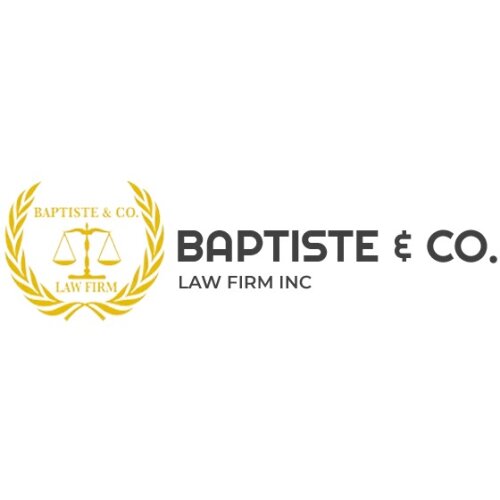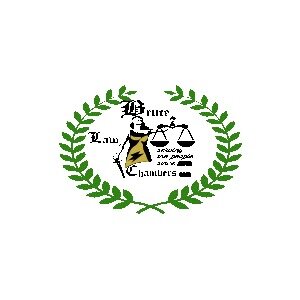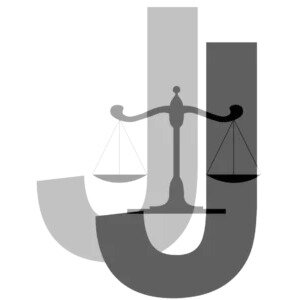Best DUI & DWI Lawyers in Saint Vincent and the Grenadines
Share your needs with us, get contacted by law firms.
Free. Takes 2 min.
Or refine your search by selecting a city:
List of the best lawyers in Saint Vincent and the Grenadines
About DUI & DWI Law in Saint Vincent and the Grenadines
Driving under the influence (DUI) and driving while intoxicated (DWI) are serious offenses in Saint Vincent and the Grenadines. These laws are designed to ensure that the roads remain safe for all users by deterring individuals from operating vehicles while impaired by alcohol or drugs. DUI and DWI laws encompass a range of behaviors, including driving with a blood alcohol content (BAC) above the legal limit and operating a vehicle while impaired by drugs.
Why You May Need a Lawyer
There are several scenarios in which seeking legal advice for DUI & DWI can be crucial:
1. First-time Offense: Even if it's your first DUI or DWI, the legal consequences can be severe, and a lawyer can help mitigate penalties.
2. Repeat Offenders: Facing subsequent charges can lead to harsher penalties including longer jail time and higher fines. Legal representation is vital.
3. Accidents: If the DUI or DWI incident involved an accident, especially with injuries, legal expertise is crucial to navigate the complex legal ramifications.
4. Challenging BAC Results: If you believe the BAC testing was flawed or inaccurate, an attorney can help challenge the results.
5. License Suspension: DUI/DWI convictions often come with license suspensions; a lawyer can assist in negotiating terms or seeking reinstatement.
Local Laws Overview
Key aspects of the DUI & DWI laws in Saint Vincent and the Grenadines include:
1. Legal BAC Limit: The legal blood alcohol content (BAC) limit for drivers is typically 0.08%. For commercial drivers, the limit may be lower.
2. Implied Consent: Drivers are deemed to have given their consent to BAC testing by their mere act of driving. Refusal can result in immediate penalties.
3. Penalties: Penalties for DUI/DWI can include fines, imprisonment, license suspension, and mandatory participation in rehabilitative programs.
4. Zero Tolerance for Underage Drivers: There is usually a zero-tolerance policy for drivers under 21, with any detectable alcohol level being grounds for arrest.
5. Aggravating Factors: Higher penalties may apply if there are aggravating factors, such as extremely high BAC levels, the presence of minors in the vehicle, or causing an accident while impaired.
Frequently Asked Questions
What are the penalties for a first-time DUI offense?
Penalties may include fines, a temporary license suspension, and in some cases, imprisonment or community service.
Is there a difference between DUI and DWI?
In most jurisdictions within Saint Vincent and the Grenadines, the terms are used interchangeably. However, DUI can sometimes refer to drugs or alcohol, while DWI specifically refers to alcohol impairment.
Can I refuse a breathalyzer test?
Refusing a breathalyzer test can result in immediate penalties such as license suspension and fines, under the implied consent laws.
What is the legal BAC limit?
The legal BAC limit is generally 0.08%. However, for commercial drivers and underage drivers, stricter limits apply.
What if I am a repeat offender?
Repeat offenders can face escalating penalties, including longer jail time, larger fines, and longer periods of license suspension.
Can I appeal a DUI/DWI conviction?
Yes, you can appeal, but it is a complex process that usually requires the expertise of a lawyer to navigate successfully.
What happens if I cause an accident while DUI/DWI?
Causing an accident can lead to more severe penalties, including higher fines, longer imprisonment, and civil liability for damages and injuries caused.
Are there any defenses against DUI or DWI charges?
Possible defenses might include challenging the traffic stop, the accuracy of the BAC testing, or demonstrating procedural errors during arrest and booking.
How long will a DUI/DWI stay on my record?
This can vary, but a conviction may stay on your driving record for several years and can impact your insurance rates and employment opportunities.
Can I get my license reinstated after a suspension?
You can usually get your license reinstated after fulfilling specific requirements, such as paying fines, attending DUI education programs, and serving the suspension period.
Additional Resources
Here are some additional resources you may find helpful:
1. Police Department of Saint Vincent and the Grenadines: Provides information on DUI checkpoints, laws, and penalties.
2. Legal Aid Office: Offers free or low-cost legal services for those who qualify.
3. Ministry of Transport: Information on driver’s licensing, traffic laws, and penalties.
4. Alcoholics Anonymous: Support for individuals struggling with alcohol dependency.
Next Steps
If you need legal assistance for a DUI or DWI charge, consider taking the following steps:
1. Consult a Lawyer: Seek immediate consultation with a lawyer experienced in DUI/DWI cases in Saint Vincent and the Grenadines.
2. Gather Information: Collect all relevant information, including police reports, BAC results, and any witness statements.
3. Follow Legal Advice: Adhere to the guidance provided by your attorney to navigate the complexities of your case effectively.
4. Attend All Hearings: Make sure to attend all court hearings and mandated programs related to your charge.
5. Consider Counseling: If alcohol or drugs are a recurring issue, seek counseling or rehabilitation programs to avoid future legal problems.
Lawzana helps you find the best lawyers and law firms in Saint Vincent and the Grenadines through a curated and pre-screened list of qualified legal professionals. Our platform offers rankings and detailed profiles of attorneys and law firms, allowing you to compare based on practice areas, including DUI & DWI, experience, and client feedback.
Each profile includes a description of the firm's areas of practice, client reviews, team members and partners, year of establishment, spoken languages, office locations, contact information, social media presence, and any published articles or resources. Most firms on our platform speak English and are experienced in both local and international legal matters.
Get a quote from top-rated law firms in Saint Vincent and the Grenadines — quickly, securely, and without unnecessary hassle.
Disclaimer:
The information provided on this page is for general informational purposes only and does not constitute legal advice. While we strive to ensure the accuracy and relevance of the content, legal information may change over time, and interpretations of the law can vary. You should always consult with a qualified legal professional for advice specific to your situation.
We disclaim all liability for actions taken or not taken based on the content of this page. If you believe any information is incorrect or outdated, please contact us, and we will review and update it where appropriate.
Browse dui & dwi law firms by city in Saint Vincent and the Grenadines
Refine your search by selecting a city.












